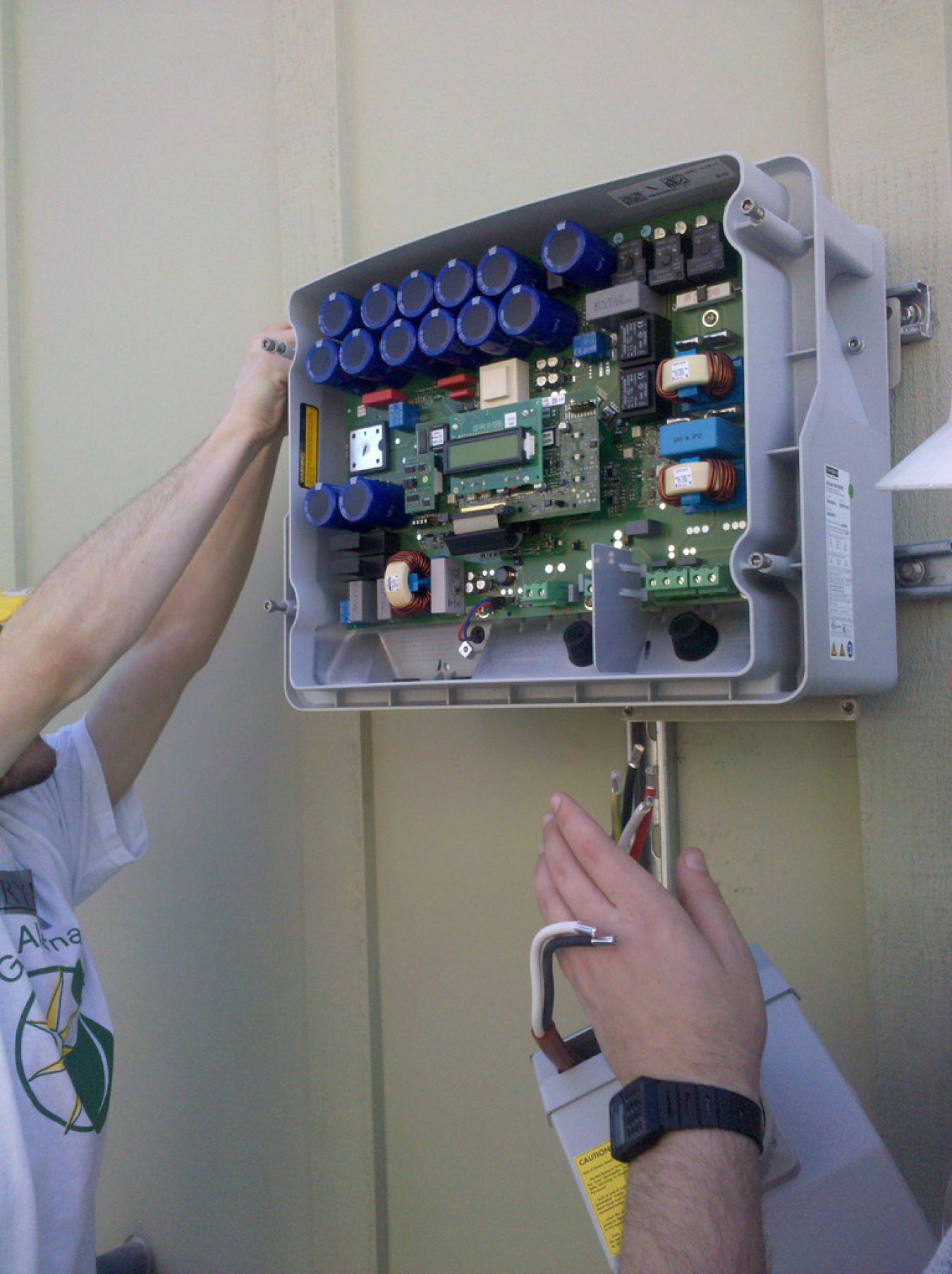EERE Success Story—SunShot Funding Spurs Standardized Testing for “Smart” Solar Inverters
August 12, 2015
Caption: Inverters allow for the electricity produced by solar panels to be converted into electricity. Licensed photo courtesy of Lauren Wellicome.
Solar inverters are one of the most important components of a solar energy system. These power electronic devices convert the direct current produced by photovoltaic panels into alternating current – the type of electricity used by all of the appliances in your home. New technologies enable inverters to have advanced (smart) functions that serve to ensure the stability and reliability of the grid. The SunShot Initiative has helped develop “smart” solar inverters through funding and support for foundational work to ensure that inverters live up to the highest standard.
The Institute of Electrical and Electronics Engineers (IEEE) — which establishes standards and testing protocols for electrical and electronic components, including solar inverters — recently passed amendment 1547.1a, which standardizes inverter testing protocols and procedures for three advanced inverter functionalities: regulating voltage, riding through abnormalities of grid voltage, and providing modulated power output in response to abnormal grid frequency. It also created two new type tests to assess response to abnormal frequency conditions and capability for voltage regulation. These developments are significant for the solar industry. Manufacturers of advanced inverters for solar applications now have industry-accepted standard test protocols to guarantee their products, and utilities can now turn to these advanced inverters as additional options for stability and reliability of the electric grid.
The SunShot Initiative’s Systems Integration subprogram funded the technical work that helped IEEE established these standards. The National Renewable Energy Laboratory led the IEEE 1547.1a working group and coordinated the research with private industry and universities. Sandia National Laboratories developed and validated test procedures for grid interoperability, tested protocols for advanced inverter functionality, and provided validated measurement capabilities to distributed energy resource communities.
IEEE’s 1547.1a amendment is a significant milestone that will enable the solar industry to benefit from the additional grid resilience that advanced inverters provide, while ensuring that all grid-connected inverters meet defined standards for safety and reliability. Ultimately, it will allow for high levels of solar energy to be integrated into the nation’s power system in a safe, reliable, and cost effective manner. Learn more about IEEE’s 1547.1a amendment and the SunShot Systems Integration subprogram.
The Office of Energy Efficiency and Renewable Energy (EERE) success stories highlight the positive impact of its work with businesses, industry partners, universities, research labs, and other entities.

